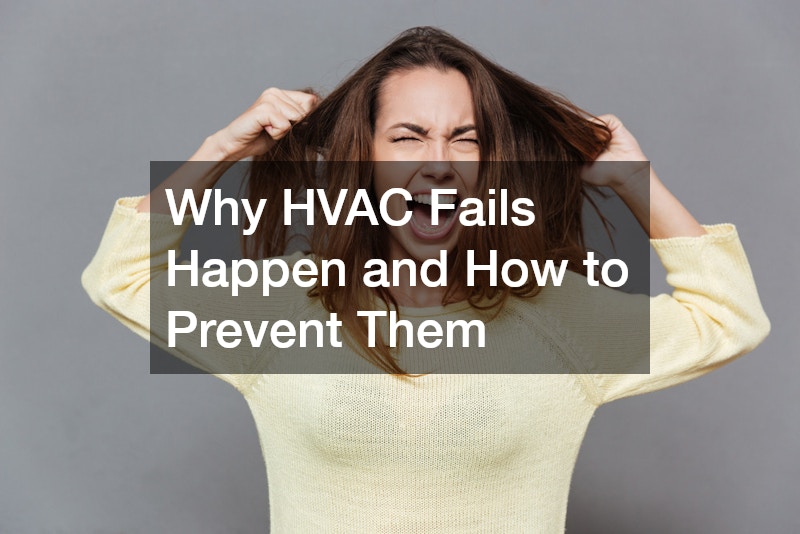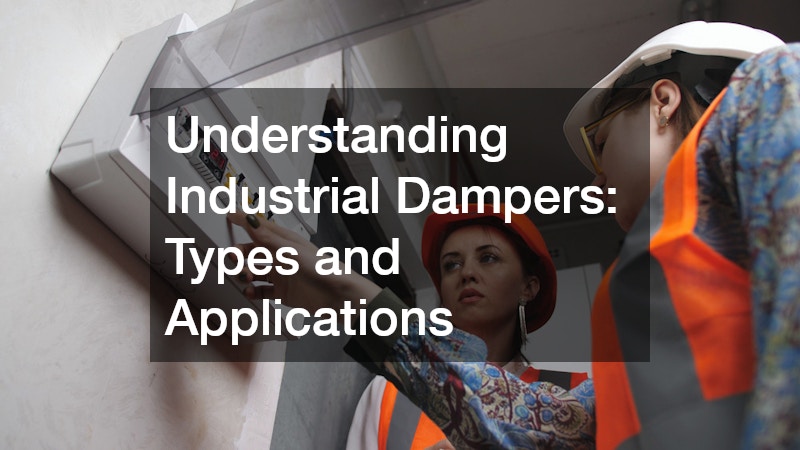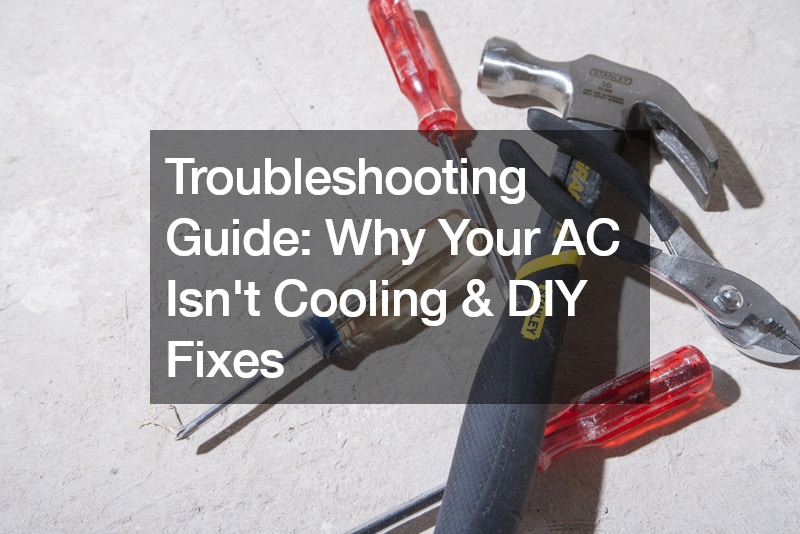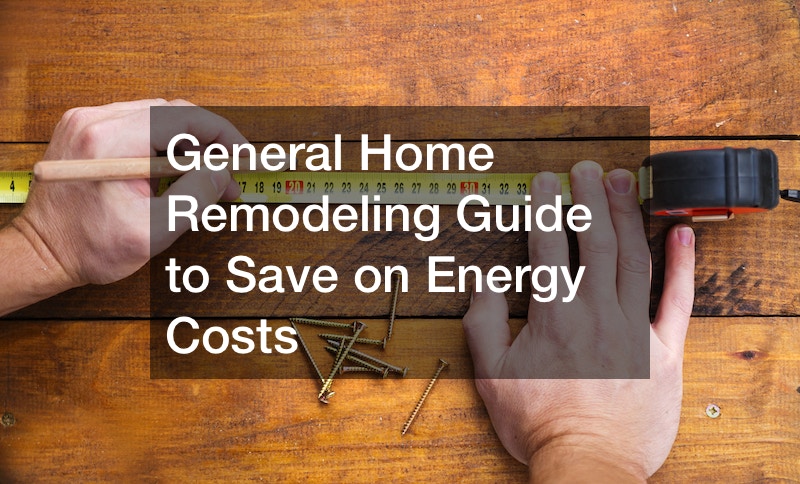Heating, Ventilation, and Air Conditioning (HVAC) systems are an essential component of modern life. These systems provide climate control in homes, offices, and commercial buildings, making them comfortable and livable. Despite their importance, HVAC systems are not immune to failures, which can result in discomfort, higher energy costs, and expensive repairs. Understanding the reasons behind these failures and how to prevent them can save you time, money, and stress. This article will explore why HVAC failures occur and offer solutions to help maintain your system effectively. We will discuss the importance of regular maintenance, the role of electrical experts, the impact of proper siding and roofing, sealing considerations, and other factors that can influence HVAC efficiency and longevity.
How Regular HVAC Maintenance Can Prevent Common System Failures

Regular upkeep of your HVAC system is crucial to preventing common problems that can lead to complete system failure. Scheduled inspections and tune-ups can identify potential issues before they become major headaches. For instance, clogged filters can reduce airflow, causing the system to overheat and eventually fail. Replacing or cleaning filters regularly is a simple yet highly effective preventive measure.
Another critical aspect of maintenance is monitoring and adjusting the system’s refrigerant levels. Low refrigerant can lead to reduced cooling capacity and increased energy consumption, which could make the system work harder than it should. Ensuring that refrigerant levels are optimal can prevent issues that could eventually cause HVAC fails.
Finally, regular maintenance includes checking and cleaning essential components like coils, fans, and ducts. Over time, these parts can accumulate dust and debris, leading to decreased efficiency and potential system breakdowns. By keeping these components clean and in good working order, you can significantly extend the life of your HVAC system.
The Role of Electrical Experts in Preventing HVAC System Issues

Electrical issues are a common cause of HVAC failures. Poor wiring, faulty electrical connections, or issues with the system’s control board can lead to malfunctioning units or complete shutdowns. An experienced electrician company can identify and rectify these problems before they lead to costly repairs or replacements.
For example, electric motors are integral to the proper functioning of HVAC systems. If these motors are not running correctly due to electrical faults, your HVAC system may struggle to maintain a consistent temperature. Conversely, frequent electrical surges or outages can also put unnecessary strain on the system, accelerating wear and tear.
Periodic electrical inspections are an essential part of comprehensive HVAC maintenance. By hiring a qualified electrician company to inspect the electrical components of your HVAC system, you can ensure that everything is functioning correctly, thereby reducing the likelihood of HVAC fails. This can help prevent costly repairs and extend the lifespan of your HVAC system. Regular maintenance can also improve energy efficiency, saving you money on utility bills in the long run.
Why Proper Siding Installations Are Related to Your HVAC

Many homeowners may not realize the impact that siding can have on their HVAC systems. Poorly installed or damaged siding can lead to gaps and leaks that allow air to escape, forcing your HVAC system to work harder to maintain the desired indoor temperature. Utilizing professional residential siding services can ensure that your siding is properly installed and maintained, thereby helping to prevent HVAC fails.
Proper siding acts as an additional layer of insulation for your home, keeping your indoor environment more stable. When the siding is in good condition, it minimizes the external temperature’s impact on your home’s interior, thus reducing the strain on your HVAC system. A well-insulated home will naturally retain heat in winter and stay cooler in the summer, making the HVAC system more efficient.
Moreover, quality siding can help prevent moisture from seeping into your home, which can wreak havoc on HVAC systems and other structural components. Siding that effectively repels moisture will safeguard your HVAC system from potential water damage, extending its lifespan and improving overall performance. In addition, quality siding can also enhance the curb appeal of your home, increasing its value and making it more attractive to potential buyers. Investing in high-quality siding not only benefits your HVAC system but also adds to the overall aesthetics and value of your property.
How Roof Maintenance Can Impact the Longevity of Your HVAC System

The roof is another crucial element that can significantly affect the performance and durability of your HVAC system. Roof damage, such as leaks or poor insulation, can lead to temperature fluctuations inside your home. This inconsistency can force your HVAC system to work harder than necessary, increasing the likelihood of system failures. Regular inspections and maintenance by professional roofers can help prevent these issues.
For instance, proper attic ventilation is essential for maintaining a balanced indoor climate. An inadequately ventilated attic can trap heat, making your HVAC system work overtime to cool the home. Roofers can install or improve ventilation systems, helping to maintain a more consistent indoor temperature and reducing the strain on your HVAC system.
Additionally, a well-maintained roof can help to insulate your home effectively, reducing the amount of energy needed to heat or cool the interior. This reduces the workload on your HVAC system, further extending its lifespan and reducing the risk of HVAC failure. Regular maintenance of both your attic ventilation and roof can also help prevent issues such as mold growth and moisture buildup, which can lead to costly repairs and health concerns. Proper attic ventilation and a well-maintained roof are key components in ensuring the overall efficiency and longevity of your home’s HVAC system.
Ensuring Proper Sealing to Avoid HVAC Problems
Proper sealing of windows and doors is an often-overlooked factor that can greatly affect HVAC performance. Gaps and leaks around these structures can allow conditioned air to escape and outside air to enter, causing your HVAC system to work harder to maintain the desired temperature. By ensuring that your windows and doors are correctly sealed, you can prevent unnecessary strain on your HVAC system.
Over time, seals and weatherstripping around windows and doors can degrade, leading to energy inefficiency. Regular checks and maintenance of these seals can help keep your home energy-efficient and lessen the burden on your HVAC system. High-quality, professionally installed windows and doors can provide better insulation, making it easier for your HVAC system to regulate indoor temperatures.
By keeping your windows and doors in good condition, you can help maintain a stable indoor climate, thereby reducing the frequency of HVAC fails and extending the system’s overall lifespan.
How Choosing the Right Window Treatments Can Enhance HVAC Efficiency
While windows bring in natural light and offer outside views, they can also be a source of heat gain or loss, affecting the efficiency of your HVAC system. Selecting the right window draperies and treatments can help regulate the amount of heat entering or leaving your home, thus making it easier for your HVAC system to maintain a comfortable indoor environment.
Thermal drapes or shades designed to insulate windows can be particularly effective during extreme weather conditions. During the summer, closing these treatments can block out heat, reducing the need for air conditioning. Conversely, in winter, they can help retain heat, lessening the demand on your heating system. Implementing such solutions can lessen the risk of HVAC fails.
Additionally, automated window treatments can be programmed to open and close based on the time of day or indoor temperature, optimizing your home’s internal climate without manual intervention. This can lead to more efficient HVAC system performance and fewer instances of breakdowns.
Other Surprisingly Important Options for HVAC System Protection
In addition to standard maintenance practices, there are other surprisingly effective ways to protect your HVAC system. One option is installing a radiant barrier in your attic to reduce heat gain, thereby easing the load on your air conditioner systems. A radiant barrier reflects radiant heat away from your home, keeping it cooler in the summer and reducing the strain on your HVAC system.
Another option is to consider zoning systems, which allow you to control the temperature in different areas of your home independently. This can maximize comfort while minimizing energy usage, ultimately reducing wear and tear on your HVAC system and lessening the risk of HVAC fails.
Finally, investing in a smart thermostat can be beneficial for optimizing HVAC efficiency. Smart thermostats adjust heating and cooling based on your routine and preferences, ensuring that your system operates only when necessary. This can significantly lower energy consumption and extend the life of your HVAC system.
How Upgrading Air Conditioning Systems Can Prevent Frequent Breakdowns
If your air conditioner systems are outdated, they may be more prone to frequent failures and inefficient operation. Upgrading to a modern, energy-efficient cooling system can enhance overall performance, reduce energy costs, and lower the risk of HVAC fails. Modern systems often come with advanced features, such as variable speed compressors and smart technology, which help to optimize cooling efficiency.
Improved air conditioning systems also utilize eco-friendly refrigerants, reducing the environmental impact while providing better cooling performance. Regular system checks and timely upgrades ensure that your cooling unit runs smoothly, minimizing the likelihood of unexpected breakdowns.
Investing in a new air conditioning system can also offer improved indoor air quality, as modern units come equipped with advanced filtration systems that effectively remove pollutants and allergens. This ensures a more comfortable and healthier indoor environment while reducing the strain on your HVAC system.
How to Prevent HVAC Failures With Effective Maintenance in Apartments
For property managers and landlords, effective rental maintenance management is essential to prevent HVAC fails. Regular inspections and preventive maintenance can help identify and address minor issues before they escalate into major problems that require costly repairs or replacements. This proactive approach helps ensure that HVAC systems in rental properties operate efficiently and reliably.
Routine maintenance tasks, such as changing filters, cleaning coils, and checking refrigerant levels, can be scheduled to coincide with other property upkeep activities, maximizing efficiency. Additionally, educating tenants on proper HVAC usage and simple maintenance tasks, such as changing filters, can significantly contribute to the longevity and performance of the system.
A comprehensive maintenance plan that includes HVAC checks can help property managers avoid emergency repair situations and extend the lifespan of HVAC systems, ultimately improving tenant satisfaction and reducing overall maintenance costs.
When to Consider AC Replacement Services to Avoid Ongoing HVAC Failures
In some cases, ongoing HVAC failures may indicate that it’s time to consider professional AC replacement services. Aging HVAC systems are more likely to experience frequent breakdowns and inefficient operation, resulting in higher maintenance costs and energy bills. Upgrading to a new, high-efficiency unit can provide better performance and reliability, reducing the risk of future failures.
Signs that an AC replacement may be necessary include constant repairs, increased energy consumption, uneven cooling, and inadequate indoor comfort levels. Consulting with an experienced HVAC technician can help determine if a replacement is the best course of action for your situation. They can also recommend the most suitable system for your specific needs and budget.
Investing in a new AC system can offer numerous benefits, including improved energy efficiency, enhanced comfort, and a reduced likelihood of HVAC fails. By proactively replacing an aging system, you can ensure a more reliable and efficient cooling solution for your home.
In conclusion, HVAC system failures can be the result of several factors, including inadequate maintenance, electrical issues, poor insulation, and aging components. By understanding the common causes of HVAC fails and implementing preventive measures, you can enhance the performance and longevity of your system. Regular maintenance, conducted by qualified professionals, is essential to identifying and addressing potential problems before they lead to costly repairs or system breakdowns. Additionally, investing in proper insulation, sealing, and ventilation solutions, as well as upgrading to modern, energy-efficient systems, can further improve HVAC efficiency and reliability. Whether you are a homeowner, property manager, or tenant, taking a proactive approach to HVAC services and repair can help you avoid uncomfortable and costly situations caused by system failures. By following the guidelines and recommendations outlined in this article, you can enjoy a more comfortable, energy-efficient, and reliable indoor environment for years to come.



